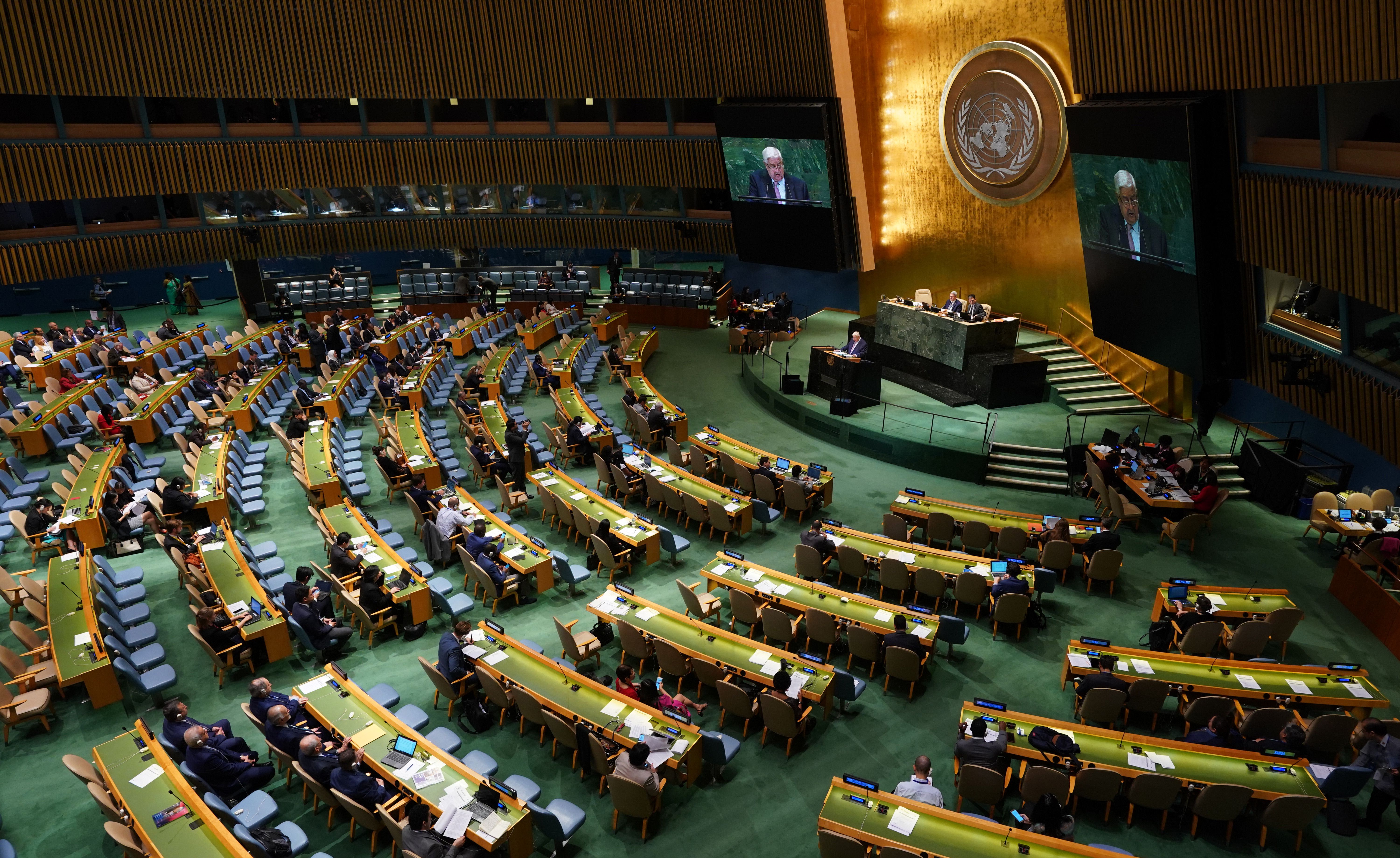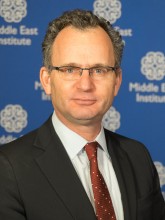In this week's Monday Briefing, MEI experts provide analysis on recent and upcoming events including a potential Arab rapprochement with the Assad regime, a likely thaw in German-Turkish relations, and the ongoing Qatar boycott.
Assad’s quiet breakthrough in New York
Paul Salem, Acting President
Among the more significant developments in last week’s U.N. General Assembly meetings was the warm encounter between the foreign ministers of Bahrain and Syria. The meeting seemed to run counter to Bahrain’s previous hard-line positions against the regime. In an interview after the encounter, Bahraini Foreign Minister Khalid bin Ahmed Al Khalifa affirmed that “the Syrian government is the government of Syria, and we work with states, even if we disagree with them, not those who seek to bring them down.” He went on to say that “the [Syrian] state must regain its control over every part of Syria.”
Khalifa emphasized that his encounter was part of a broader Arab effort to reclaim an Arab role in resolving the Syrian crisis, and not to leave the matter to non-Arab players—like Turkey, Iran, or Russia. And indeed, it is hard to imagine that Bahrain would have gone out on a limb on such a sensitive issue without some coordination with its partners within the GCC. Egypt has been in favor of building bridges to the Assad regime for some time, and Jordan recently sent a large trade delegation to Damascus.
Is this the beginning of a re-normalization of the Assad regime in Arab diplomacy, or an attempt by Arab states to engage with Assad in order to move toward a political settlement of the crisis? And will this Arab engagement confirm and consolidate Iran’s victory in Syria, or do Arab states think they can create some distance between Assad and his Iranian patrons? These questions might take many months to play out, but it seems that Assad has gotten his foot back in the door of Arab diplomacy.
Turkey and Germany’s awkward rapprochement
Gonul Tol, Director for Turkish Studies
Turkey’s President Recep Tayyip Erdogan ended a three-day trip to Germany saying that the visit had been “extremely successful.” But many in Germany think otherwise. Thousands of demonstrators hit the streets of Germany to protest Erdogan. Several German opposition politicians boycotted the banquet hosted by German President Frank-Walter Steinmeier in Erdogan’s honor, while German media slammed the visit. Steinmeier criticized Erdogan for his arbitrary arrest of journalists, trade unionists, and academics.
Yet, it was still a successful trip for Erdogan. He has been desperate for recognition from European leaders after his post-coup purges and a controversial referendum that cemented his authoritarian rule. He was received with military honors at Berlin’s airport and a state banquet. He opened one of Europe’s biggest mosques with minarets flanking a neo-Ottoman dome just a year after being barred by the German authorities from holding large campaign rallies. After having criticized Turkey’s poor press freedom, Chancellor Angela Merkel looked on as security personnel kicked a Turkish journalist out of the press conference for wearing a shirt criticizing the lack of freedom of press in Turkey. In what is seen as a diplomatic victory for Erdogan, Merkel will soon visit Turkey along with the French and Russian presidents to talk about Syria. German economy minister Peter Altmaier is scheduled to go to Turkey soon and reportedly the German government is open to the idea of providing financial support to Turkey, something that was high on Erdogan’s agenda.
The German government’s treatment of Erdogan summarizes Europe’s Erdogan policy: pay lip service to human rights abuses and Erdogan’s trampling of the rule of law as long as he keeps the Syrian refugees out of Europe.
Kuwait renews push for an end to the Qatar boycott
Gerald Feierstein, Director of Government Relations, Policy and Programs
Saudi Crown Prince Mohammed bin Salman visited Kuwait over the weekend in what was billed as a new effort to resolve the dispute between Qatar and the so-called anti-terrorism quartet—Saudi Arabia, the United Arab Emirates, Bahrain, and Egypt. The visit marks a renewed effort by the Kuwaitis to find a negotiated solution to break the impasse, which has persisted since June 2017. There has been no mention until now whether Sheikh Tamim bin Hamad Al Thani, the emir of Qatar, will also visit Kuwait. The emir told the U.N. General Assembly in his Sept. 25 speech that the blockade of Qatar launched by the quartet nations has paralyzed the GCC and harmed its reputation. He also called for reforms to the organization to introduce binding mechanisms to resolve intra-GCC differences in the future.
The U.S. has supported Kuwait’s initiative to mediate the GCC dispute. Parallel efforts in Washington to engage in the mediation have thus far not succeeded. Trump administration offers to host a summit meeting of Gulf leaders to negotiate the dispute have been rebuffed. Most recently, comments by U.S. Secretary of State Mike Pompeo aimed at pressuring the boycotting nations into a compromise drew a swift rebuke from the UAE government, which reiterated that the dispute is an internal matter. Nevertheless, the continuation of the boycott risks undermining U.S. security initiatives in the region including the anticipated Middle East Strategic Alliance. The U.S. is hoping to organize a summit meeting to launch that initiative, which includes the six GCC countries plus Egypt and Jordan, early next year.
DON EMMERT/AFP/Getty Images






